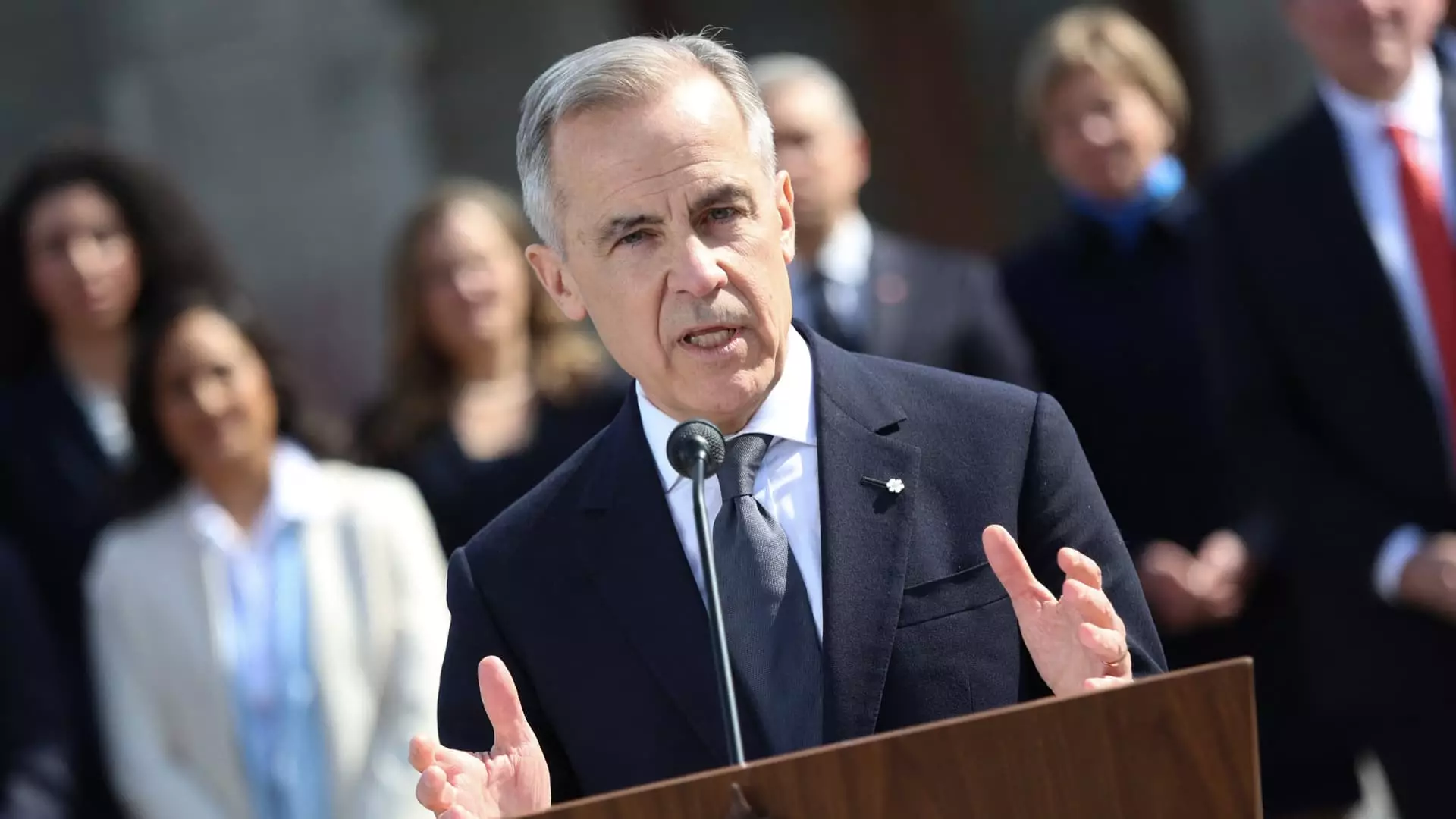In a striking demonstration of national pride, Canada’s Prime Minister Mark Carney has swiftly dismantled the echoes of a notion that seems straight out of a fever dream: the idea of Canada as the 51st state of the United States. The resurgence of this bizarre concept, seemingly plucked from the riddled imagination of a satirical comedy, found roots this past week as U.S. officials, including the ever-controversial President Donald Trump, floated this unthinkable proposition. Carney’s emphatic response left little room for ambiguity. “We will never, ever, in any way, shape, or form, be part of the United States,” he declared, invoking a robust sense of Canadian identity that transcends mere political borders.
This issue is not merely about Canadian sovereignty; it is a reflection of the sarcastic undertone that has permeated speculative political discourse. Carney’s remarks resonate with a necessary defiance, emphasizing the distinctions that define Canada. It’s not just a rejection of Trump’s hyperbolic musings; it’s a blanket affirmation of difference that all who call Canada home hold dear. Canadians are not in search of validation or inclusion under the shadow of American authority, particularly given the current administration’s frequent missteps.
The Question of Identity
Canada’s identity is as vast as its provinces and territories, shaped by a mosaic of multiculturalism and inclusivity. By asserting its uniqueness, Carney counters the notion, not just of annexation, but of a homogenized version of Canadian culture. The differences between American and Canadian governance, social values, and public policy are monumental. Carney, a seasoned economist and former governor of both the Bank of Canada and the Bank of England, articulated this idea eloquently: “You do not have that cabinet in America. We are a very fundamentally different country.” His words serve as a poignant reminder of the complex socio-economic frameworks that constitute diverse nations.
The octane-fueled rhetoric of Trump may thrive on transactions and political posturing, but it fundamentally misreads the essence of Canada—a nation resilient in the face of external pressures. Canada operates under principles that are fundamentally different: a commitment to health care as a human right, a willingness to embrace the challenges brought on by climate change, and a dedication to fostering a multicultural society. These values not only make Canada distinct but are foundational to its governance.
Economic Independence
While Carney’s passionate rebuttals are noteworthy, they evoke a critical analysis of economic implications as well. He hinted at the inherent economic rationale behind retaining independence. “The economics means we shouldn’t,” Carney said, indicating that Canada thrives on its economic production without the need for American approval or incorporation.
This assertion forces us to examine the economic dynamics at play: Canada’s economy is robust, driven by innovation and a diverse export market that includes vital partnerships beyond its southern neighbor. Tariffs imposed by the U.S. perhaps indicate a skewed view that Canada’s relationship is solely transactional, when, in fact, it’s synergistic. Carney emphasized that the Canadian government aims to bolster its economic standing globally while honorably catering to its citizens—an idea that seems lost in the chaos of competing geopolitical narratives.
Turning Toward the Future
As Carney prepares to lead Canada into its future, the emphasis on building a stronger nation is significant. “For our own people, for the high-paying jobs,” he remarked, focusing on the domestic strategies that propel progress. The Canadian government under Carney’s leadership intends to carve a path that reinforces their autonomy while fostering relationships that respect Canadian sovereignty.
In light of the past foreign policy discussions, including Trump’s far-reaching comments regarding other territories, it becomes evident that the conversation often blurs the lines of respect and misunderstandings between nations. While global politics fluctuates with the whims of leadership, Carney’s stance is a necessary fixture that reminds Canada of its steadfast beliefs and values, insisting on respect from its neighbors.
Thus, in the realm of political rhetoric and international conversations, Canada stands resolute. The rejection of the 51st state proposition is both a defensive and proactive measure that echoes through the corridors of power in Ottawa and beyond, reinforcing a long-standing truth: Canada is its own master.

